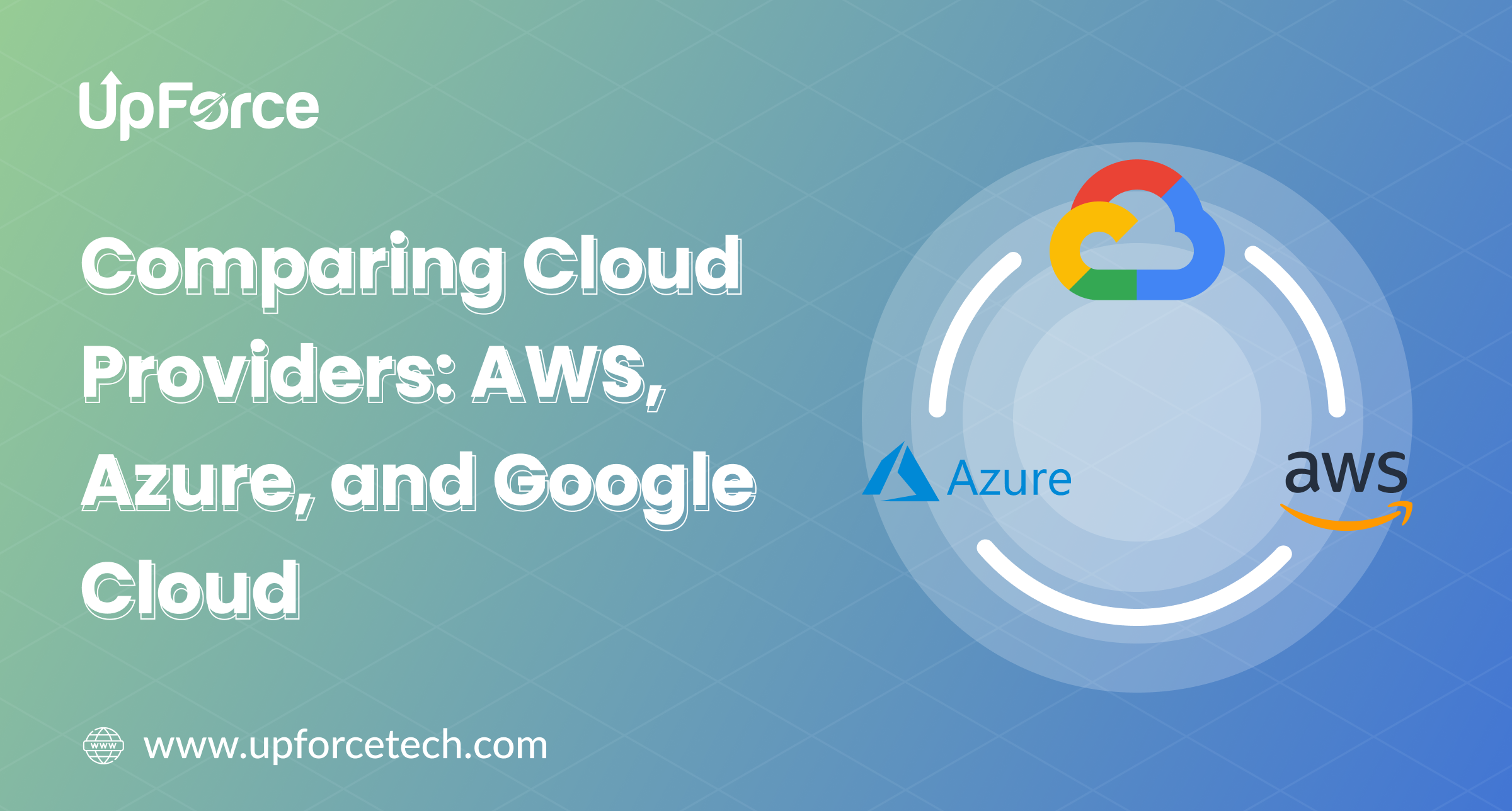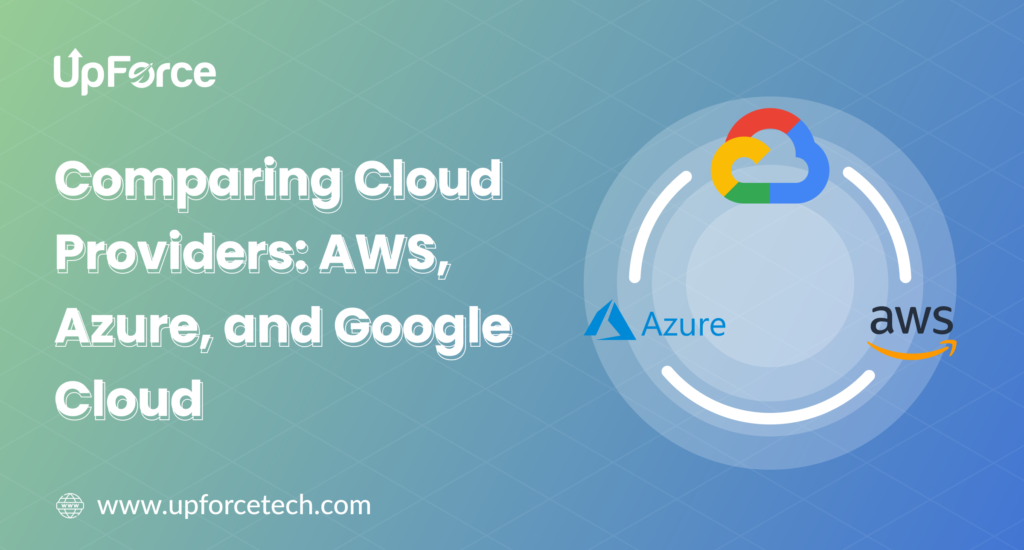AWS vs Azure vs GCP: Which Cloud Platform Should You Choose in 2025?
Table of Contents
AWS vs Azure vs GCP
Cloud computing is the backbone of modern technology, empowering businesses to innovate, scale, and compete globally. Among the many cloud providers, Amazon Web Services (AWS), Microsoft Azure, and Google Cloud Platform (GCP) dominate the market. But which platform is the best fit for your needs? Let’s break it down, comparing features, use cases, and future trends, supported by real-world statistics.

The Cloud Market at a Glance
- AWS leads with 32% market share, followed by Azure at 23%, and GCP at 10% as of Q1 2024. (Source: Synergy Research Group)
- Global cloud computing revenue is projected to reach $1 trillion by 2028, growing at a CAGR of 15.7%. (Source: Fortune Business Insights)
1. Amazon Web Services (AWS): The Cloud Leader
AWS was the first major player in cloud computing, launching in 2006. Known for its breadth of services and global reach, AWS caters to startups, enterprises, and government organizations alike.
Key Features:
- Extensive Service Portfolio: AWS offers over 200 services, including computing (EC2), storage (S3), and machine learning (SageMaker).
- Global Presence: AWS operates in 99 Availability Zones across 31 geographic regions worldwide.
- Reliability: AWS maintains 99.99% uptime, ensuring minimal downtime for mission-critical applications.
Case Study:
Airbnb uses AWS to handle millions of daily bookings. By leveraging AWS’s scalability, Airbnb can accommodate traffic spikes during peak travel seasons.
Statistics:
- AWS accounts for 70% of Netflix’s cloud infrastructure for streaming services. (Source: Netflix Tech Blog)
- 68% of startups listed AWS as their primary cloud platform in a recent survey. (Source: Flexera 2024 State of the Cloud)
Challenge:
AWS pricing can be confusing for new users.
Solution: AWS provides a Pricing Calculator to estimate costs.
2. Microsoft Azure: The Enterprise Choice
Azure integrates seamlessly with Microsoft’s ecosystem, making it the top pick for organizations already using tools like Office 365, Windows Server, or Dynamics 365.
Key Features:
- Hybrid Cloud Strength: Azure leads with tools like Azure Arc and Azure Stack, enabling hybrid and multi-cloud environments.
- AI and Analytics: Offers advanced AI services like Azure Cognitive Services and real-time analytics with Power BI.
- Enterprise-Level Security: Meets compliance standards like GDPR, ISO, and HIPAA, making it a preferred choice for enterprises.
Case Study:
Starbucks relies on Azure to analyze over 90 million weekly customer transactions, personalizing offers through real-time analytics.
Statistics:
- Microsoft reported a 31% YoY growth in Azure revenue as of Q2 2024. (Source: Microsoft Earnings Report)
- Azure handles 95% of Fortune 500 companies through its cloud services. (Source: Microsoft)
Challenge:
Azure’s features can be limiting for non-Microsoft environments.
Solution: Azure supports open-source tools like Kubernetes for broader compatibility.
3. Google Cloud Platform (GCP): The AI Specialist
While GCP may trail AWS and Azure in market share, it excels in AI, machine learning, and big data analytics.
Key Features:
- AI & ML Expertise: Tools like TensorFlow and BigQuery are benchmarks for data analysis and machine learning.
- Developer-Friendly Pricing: GCP offers per-second billing and sustained-use discounts, making it cost-efficient.
- Open Source Leadership: As the creator of Kubernetes, GCP emphasizes open-source tools for modern app development.
Case Study:
Spotify uses GCP for its recommendation engine, analyzing millions of data points to personalize user playlists.
Statistics:
- 15% of AI-focused enterprises listed GCP as their primary platform due to its advanced ML tools. (Source: Gartner)
- GCP’s BigQuery processes 1 TB of data in under 5 seconds, making it a favorite for data-driven businesses. (Source: Google Cloud Blog)
Challenge:
GCP’s market share and ecosystem are smaller compared to AWS and Azure.
Solution: It remains the best option for startups and enterprises focusing on AI-driven innovations.
4. Comparing the Big 3: Feature by Feature
| Feature | AWS | Azure | GCP |
|---|---|---|---|
| Global Reach | Largest network of regions | Second largest, enterprise-heavy | Growing rapidly |
| Pricing | Complex but flexible | Transparent, pay-as-you-go | Budget-friendly options |
| AI & ML Tools | Advanced (SageMaker) | Versatile (Azure AI) | Industry leader (TensorFlow) |
| Hybrid Solutions | Basic hybrid capabilities | Market leader (Azure Arc) | Focus on open-source integrations |
Choosing the Right Platform
The decision between AWS, Azure, and GCP ultimately depends on your business needs.
- Choose AWS for scalability and global reach.
- Choose Azure if you’re deeply integrated into Microsoft’s ecosystem.
- Choose GCP for AI-driven innovations and cost-effective analytics.
Need help navigating the cloud maze? At UpforceTech, we specialize in cloud consulting and can help you make the right choice.
How UpforceTech Can Help You Hire the Right Contract Developer
At UpforceTech, we specialize in connecting businesses with highly skilled contract developers who can meet their unique needs. Our rigorous vetting process ensures that you get access to the best talent, whether you need someone with expertise in front-end development, back-end systems, or mobile app development.
Here’s how UpforceTech can support your business:
- Access to a Global Talent Pool: We provide access to a diverse range of developers from around the world, ensuring you find the right fit for your specific project needs.
- Customized Hiring Solutions: Whether you’re looking for short-term contract developers or long-term project-based teams, we tailor our services to fit your requirements.
- Quality Assurance: Every developer in our network goes through a comprehensive screening process to ensure they have the necessary skills and experience to deliver high-quality work.
- Ongoing Support: Our commitment doesn’t end with hiring. We offer ongoing support to ensure a seamless integration of contract developers into your team.
For more information on how to get started with hiring contract developers, visit UpforceTech.
Are you looking to Grow your business with skilled developers?
For any query contact us
Sign up for the free Newsletter
"Choosing the right cloud platform isn't just a technical decision—it's a strategic move for your business's future."
UpforceTech
FAQs
AWS leads in market share and offers the most extensive services portfolio. Azure integrates seamlessly with Microsoft products, while GCP stands out for its AI and machine learning capabilities.
It depends on your needs. AWS offers extensive free-tier services and scalability, Azure is ideal for businesses using Microsoft tools, and GCP is excellent for data-driven startups leveraging AI.
Pricing varies based on the services used and region. AWS typically has a pay-as-you-go model, Azure offers hybrid discounts, and GCP is known for sustained-use discounts. Always use pricing calculators for a precise estimate.
GCP leads in AI/ML with tools like TensorFlow and AutoML. AWS and Azure also provide robust AI services but are slightly behind GCP in innovation for AI.
Yes, migration is possible but complex. Tools and professional services from the cloud providers can help ease the process, though planning and expertise are essential.
AWS has the broadest global reach, followed closely by Azure. GCP has fewer regions but offers fast, reliable services in its covered areas.
All three platforms are developer-friendly, but GCP is often praised for its intuitive interface. AWS has the largest community, while Azure integrates tightly with .NET and Visual Studio.
AWS continues to expand its services, Azure is innovating in hybrid solutions, and GCP focuses heavily on AI and big data. All three aim to dominate emerging trends like edge computing and IoT.
Evaluate your business needs, such as existing infrastructure, budget, and specific use cases. Testing each platform's free tier can provide insights into their suitability.

